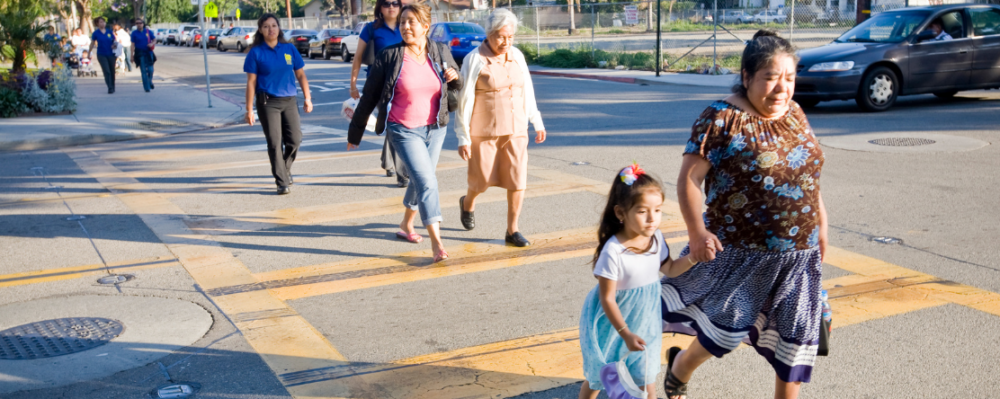
Program Office for the CDC Cooperative Agreement (POCA)
Through a master cooperative agreement, the Program Office for the CDC Cooperative Agreement (POCA) partners with the CDC to strengthen public health professionals’ capacity to plan, coordinate, implement, and assess effective chronic disease initiatives. POCA provides cohesive external and internal management between PHI programs and the CDC.
Program Directors

-
Focus Areas
Capacity Building & Leadership, Chronic Disease Prevention -
Expertise
Leadership Development
Projects
Active Projects
- Expanded Drug Overdose Investigation Trainings to Improve Overdose Mortality Surveillance
-
This project aims to enhance the capacity of medical examiners and coroners through specialized training in drug overdose investigation and death certification, ultimately improving the quality and timeliness of overdose mortality data. By equipping these professionals with better knowledge and skills, public health surveillance of fatal drug overdoses will be strengthened across state, tribal, local, and territorial health departments. The resulting improved data will empower health strategists—epidemiologists, informaticians, and data scientists—to better inform prevention and response efforts. This initiative is part of the Overdose Data to Action CDC cooperative agreement, supporting jurisdictions in building capacity for opioid overdose prevention and surveillance.
PHI will collaborate with the National Network of Public Health Institutes (NNPHI), one of the main organizations CDC engaged through OT18-1802 to support engagement of coroners and medical examiners. By collaborating with NNPHI, PHI intends to advance engagement with organizations NNPHI has developed strong working relationships with including the International Association of Coroner and Medical Examiners (IACME); Center for Forensic Science, Research, and Education (CSFRE); and National Association of Medical Examiners (NAME); among others.
- Sustainability of OT21-2103 Best Practices
-
This project aims to support the sustainability of OT21-2103 Best Practices for state, local, and US territorial and freely associated public health departments receiving funding through OT21-2103 recipients. The focus will be the dissemination of evidence-based, and/or best or promising practices to address COVID-19 related disparities. We will leverage our partnerships with national partners and subject matter experts and will build upon best practices developed and lessons learned through OT21-2103, including resources, tools, briefs, literature to promote the sustainability of best practices for grant recipients.
PHI will collaborate with the National Network of Public Health Institutes (NNPHI), one of the main organizations CDC engaged through OT21-2103 Covid-19 Health Equity Best Practices to provide technical assistance provided to recipients over the past three years. By collaborating with NNPHI, PHI intends to advance sustainability of the overall body of work accomplished through OT21-2103.
- Support for Pediatric Providers: Improving Nutrition from Birth to 2 Years
-
This project aims to build the capacity of chronic disease practitioners and pediatric healthcare providers to expand and enhance the provision of consistent, comprehensive and culturally relevant nutrition anticipatory guidance to establish healthy habits for children birth to 2 years of age. Key activities include disseminating consistent messages through resources and provider training, enhance overall training of pediatric healthcare providers and conduct quality improvement projects.
The American Academy of Pediatrics and the Institute for Healthy Childhood Weight have a long history of partnerships within the clinical and public health sector. The Institute has demonstrated partnerships with the USDA, WIC, National Association of Nurse Practitioners, Academy of Nutrition and Dietetics, American College of Obstetrics and Gynecology, the Nurse Family Partnership, and the National Association of Community Health Centers. We have showcased our capacity working across professional organizations in order to create materials for families and providers specific to early nutrition and obesity prevention. Most recently a series of social media messages and patient education fact sheets were created with insight from key partners as well as parent key information interviews.
- Dissemination of 2023 Child Obesity Clinical Practice Guideline and Tools
-
This project aims to spread awareness about and support implementation of the key recommendations from the 2023 American Academy of Pediatrics Clinical Practice Guideline (CPG) on the Evaluation and Treatment of Children and Adolescents with Obesity. This will be done through key activities focused on promotional and dissemination efforts, training, and quality improvement. In addition, feedback will be ascertained to inform new tools and website enhancements to facilitate continued spread and scale of Family Healthy Weight Programs and the key recommendations of the CPG.
The American Academy of Pediatrics and the Institute for Healthy Childhood Weight have a long history of partnerships within the clinical and public health sector. The Institute has demonstrated partnerships with the USDA, WIC, National Association of Nurse Practitioners, Academy of Nutrition and Dietetics, American College of Obstetrics and Gynecology, the Nurse Family Partnership, the National Association of Community Health Centers, The Obesity Society, the Association of Obesity Medicine, and the Obesity Action Coalition. Many of these partners were instrumental in the initial roll out of the AAP 2023 Clinical Practice Guideline on the Evaluation and Treatment of Children and Adolescents with Obesity.
- Improving Obesity Prevention, Treatment, and Nutrition in FQHCs
-
The purpose of this project is to improve capacity and support for public health professionals and chronic disease practitioners in community health centers (CHCs) that serve households with lower incomes to improve the quality of child nutrition, healthy growth, and obesity prevention and treatment efforts to align with national care guidelines and recommendations.
Specifically, this project aims to utilize clinical practice guidelines, clinical quality measures and electronic health records (EHRs) to: 1) Increase capacity and support for the successful implementation of CDC recognized evidence-based Family Healthy Weight Programs (FHWP) including building on lessons learned from a 2018-2022 pilot of program implementations in federally qualified health centers (FQHCs), and extend FHWPs to additional CHC sites or locations; 2) Build on lessons learned from 2020-2022 FQHC learning collaboratives to improve child obesity prevention and treatment by incorporating Key Action Statements from the 2023 AAP (American Academy of Pediatrics) “Clinical Practice Guideline for the Evaluation and Treatment of Obesity in Children & Adolescents;" 3) Build on results from the 2023 pilot test of 3 proposed child obesity quality measures in FQHCs, and further pilot, assess, and refine the measures, and potentially begin the balloting process for quality measures; 4) Support nutrition security including domestic micronutrient status and surveillance (particularly iron, anemia, and iodine status) – building on 2022 work on nutrition and micronutrient status to drive informed decision-making with high-risk vulnerable children and families.
With PHI providing public health expertise in partnership with NACHC, they are uniquely positioned to design program approaches in partnership with health centers, strategic national partners, and other subject matter experts to reach populations with the greatest disparities in health outcomes. Health centers are the cornerstone for integrating primary care and public health and are making significant strides in reducing disparities in health outcomes and improving health equity. NACHC also has technical expertise directing quality improvement activities, as well as implementation science processes and health IT infrastructure at the practice level.
All materials and insights developed through this program will be disseminated to partners nationally through PHI’s and NACHC’s established communication infrastructure and programs, including strategic convenings and digital tools/platforms.
- Lead Free Communities Initiative
-
The Lead-Free Communities (LFC) Initiative is a national initiative to eliminate lead exposure, and its associated negative health effects, in communities across the United States. LFC offers a new strategy for community-led problem solving and boosting local public health infrastructure that could be especially meaningful to communities most at risk for lead exposure hazards and other environmental injustices and health threats. By building capacity locally, the LFC Initiative will help communities strengthen local ties and lay the groundwork for collaborating to address other issues that may affect local health and wellbeing. This project continues to support alumni and current LFC teams through a learning group, the LFC toolkit, webinars and a summit. In addition, efforts will be made to strategically connect the LFC initiative to other lead prevention initiatives.
- Rural Public Health Training Curriculum
-
The project plan for the Rural Public Health Training Curriculum, led by the Public Health Institute's Population Health Innovation Lab (PHIL), outlines a comprehensive strategy to develop and implement a training curriculum aimed at enhancing the capacity of rural public health professionals. The plan emphasizes collaboration with the CDC's Office of Rural Health (ORH), the Public Health Foundation (PHF), and other rural public health experts to ensure the curriculum is tailored to the unique needs of rural communities.
Key activities include establishing a Curriculum Design Team (CDT) to identify core competencies and major topics, developing modular training plans aligned with these competencies, and creating content for delivery via multiple formats, including web-based training (WBT). The curriculum will be hosted on the TRAIN Learning Network, providing access to a wide audience of public health professionals. The project also includes pilot testing the WBT to refine content and ensure its effectiveness before a broader rollout.
The project aims to produce a multi-modal curriculum that builds essential skills and competencies, increasing the availability and use of capacity-building services in rural public health. The curriculum will be promoted through various channels, including live webinars and online platforms, to reach a broad and diverse audience. The goal is to enhance rural public-health professionals' ability to address current and emerging health challenges in their communities.
- Chronic Disease Capacity Building Initiative
-
Chronic Disease Capacity Building Initiative
Round one funded project (8/1/2024 - 7/31/2025)
CDCBI expects to serve up to 20 CDSs (which is 4 CDS teams per year, with 3-4 members per team). We anticipate the CDS teams receiving CDCBI support will represent the US geographic areas with highest incidence of chronic disease. The QI process and evaluation methodology will become more robust each year as the learning effectiveness improves and impacts are realized. A final evaluation at the end of the fifth year will summarize QI improvements over time and end of project learnings. Through key activity area 2 and the D4H webinars, we anticipate we can reach 100s of participants each year, for a total of 500 CDSs over the period of the award.

Work With Us
You change the world. We do the rest. Explore fiscal sponsorship at PHI.
Support Us
Together, we can accelerate our response to public health’s most critical issues.
Find Employment
Begin your career at the Public Health Institute.



